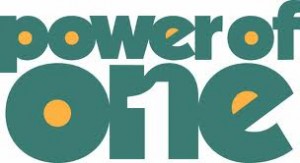The Power of One: Lawyer as Peacemaker
 Note: This is the third installment in a four-part series of blog posts; you’ll find part one here, part two here, and part three here.
Note: This is the third installment in a four-part series of blog posts; you’ll find part one here, part two here, and part three here.
The notion that lawyers are in a unique position to restore peace is far from new. Abraham Lincoln urged lawyers, “Discourage litigation. Persuade your neighbors to compromise whenever you can. As a peacemaker the lawyer has superior opportunity of being a good man. There will still be business enough.”
As practitioners we are called to tap our creativity and compassion to see beyond, around, and within the limited solutions offered by the law. Peacemaking is more restorative, more involved, and infinitely more work than ending a lawsuit with a dollar figure, or a criminal case with a period of years.
About two years ago, Rachel Monaco-Wilcox took a bold step outside of the traditional estate-planning realm in which she had gained expertise and respect. She had become increasingly frustrated with “the failure to implement appropriate legal solutions because humanness was being shoved into corners.” Underlying relational conflict would be ignored, then it would surface; the legal work would be stymied. She came to a place where she needed, in her words, to find a way to work in the law that was compatible with her gifts, or leave it altogether. Rachel needed to rekindle the passion that led her to law school in the first place.
This kind of self-examination is, incidentally, foundational to peacemaking.
Borsuk Honored for “Building a Better Teacher” Series
 Alan J. Borsuk, senior fellow in law and public policy at the Law School, was named a winner Monday in a major national education journalism competition. Borsuk was honored for his role in the project, “Building a Better Teacher,” which ran on the front page of the Milwaukee Journal Sentinel for eight consecutive Sundays in November and December.
Alan J. Borsuk, senior fellow in law and public policy at the Law School, was named a winner Monday in a major national education journalism competition. Borsuk was honored for his role in the project, “Building a Better Teacher,” which ran on the front page of the Milwaukee Journal Sentinel for eight consecutive Sundays in November and December.
The Education Writers Association, a national organization of education journalists, named the project the best series of 2010 by a large publication. The series resulted from collaboration between the Law School; the Hechinger Report, an education journalism organization that is part of Columbia University; and the Journal Sentinel, including reporters Amy Hetzner, Erin Richards, and Becky Vevea.
Borsuk helped design the plan for the series and wrote three of the eight pieces. Borsuk, a longtime reporter and editor for the Milwaukee Journal and Milwaukee Journal Sentinel, joined the Law School staff in 2009. He writes and edits pieces for Marquette Lawyer magazine, writes for the Law School’s web pages, and is involved in a variety of public policy activities. He also writes a Sunday column on education for the Journal Sentinel.
The education writers’ contest is judged by experts who are independent of the publications that enter. This year’s judging was directed by Tamara M. Cooke Henry, of the Philip Merrill College of Journalism at the University of Maryland.
The series can be found at http://www.jsonline.com/news/education/111494694.html.

